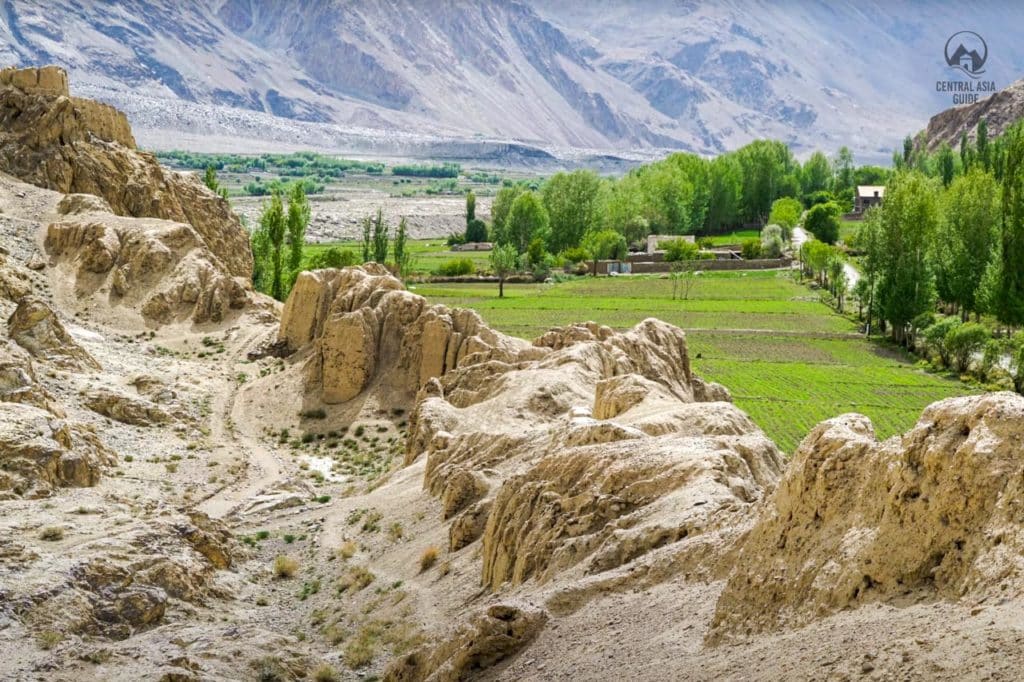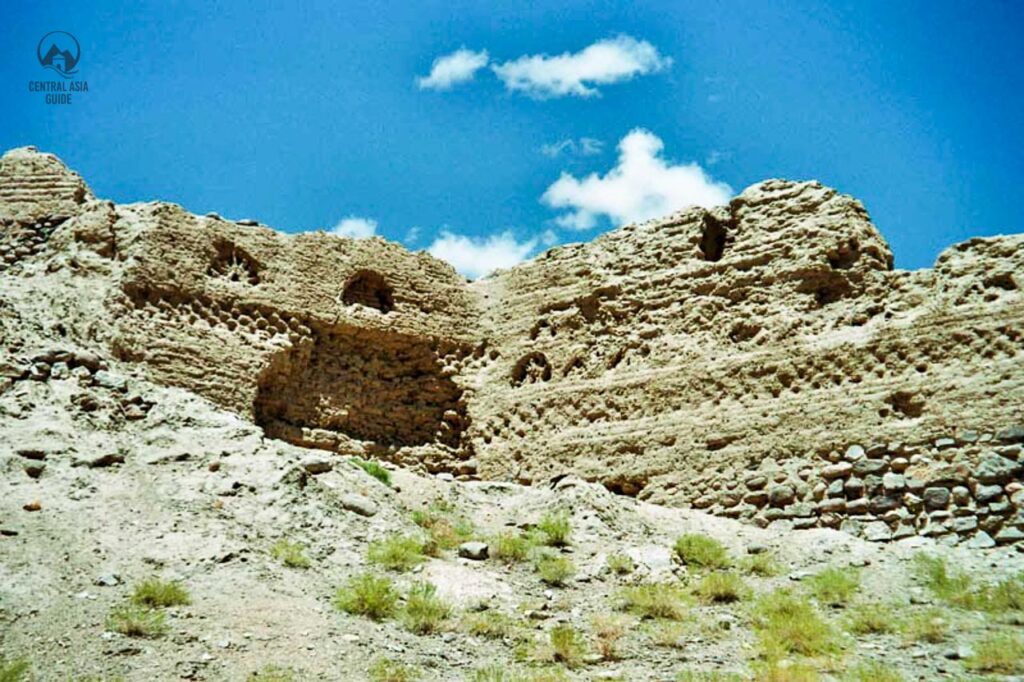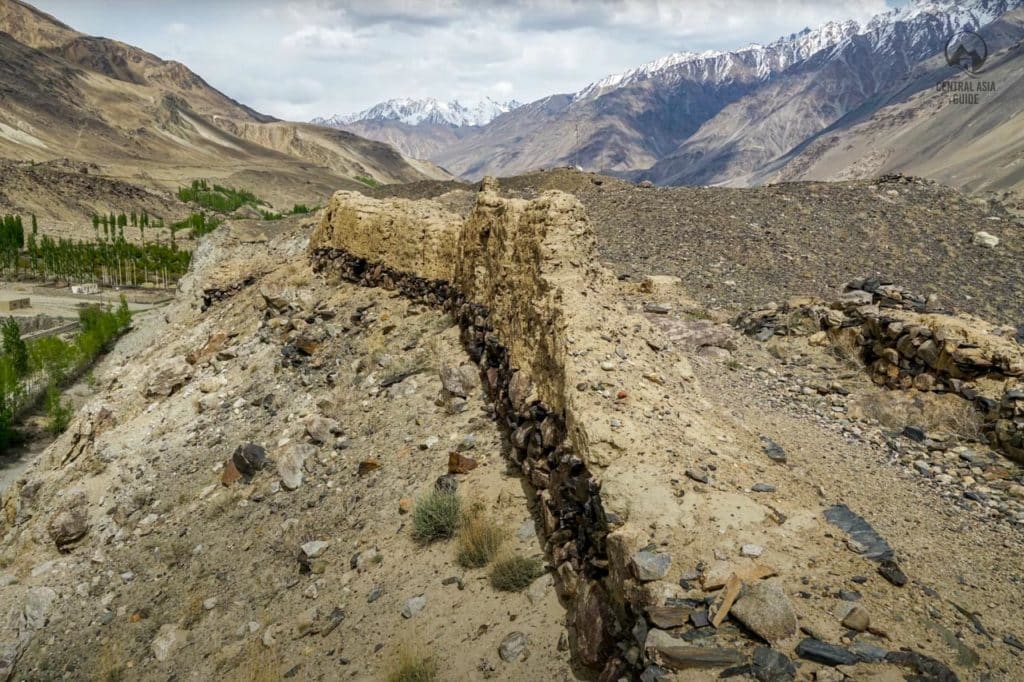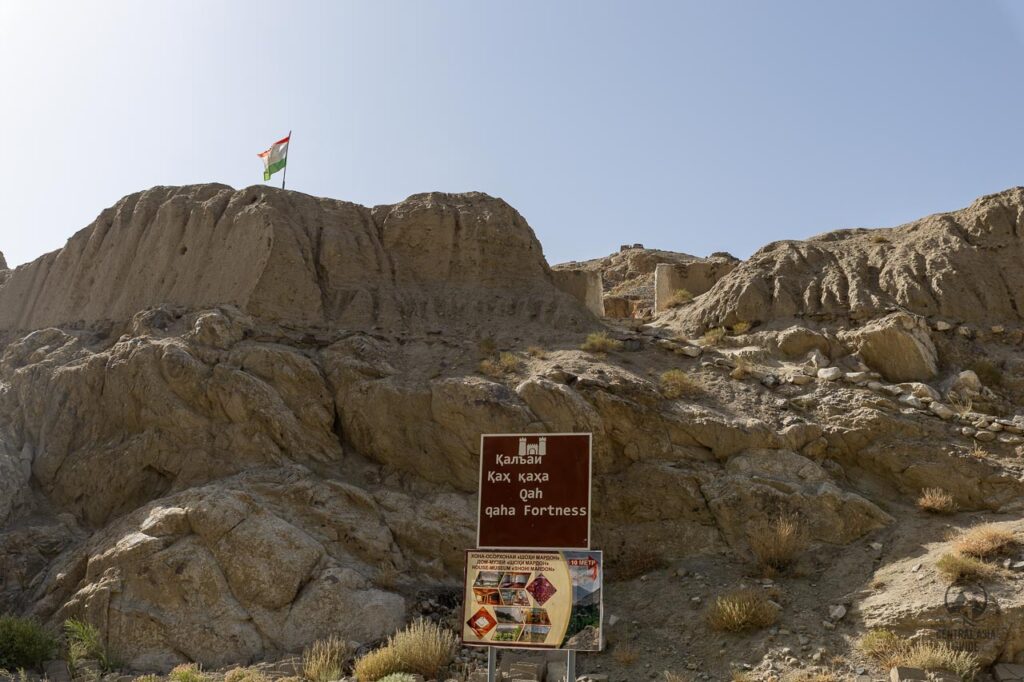Khakha Fortress
Khakha Fortress
Khakha fortress is also known as Kaahka and Qah Qaha fortress and belongs to a 2nd century BC monument left from the Kushan era Empire when the Great Silk Road was flourishing. There is no evidence of how the fortress appeared but it is most possible that the Kah-Kakha fortress rose thanks to this trade route and its purpose was to defend caravans heading from China to Afghanistan and India along the Wakhan valley. The decline of the fortress matches with the time of Arab conquest to Central Asia which took place in the 7th century AD.
Khakha Fortress is the second most notable fortification built in Wakhan to defend Western Pamirs after the Yamchun fort. The fortress got its name after a legendary hero and the king of Siahpushes- Qanqaha or Khakha. Siahpushes are known to be fire-worshippers (Zoroastrians) and worn black gowns following the Zoroastrian way. It was constructed on a large natural cliff over the Panj River southeast of the Ishkashim town. Now the fortress offers great views to the Afghan side of the border where one can see the locals herding their cows and working with their fields.


Khakha fortress ruins
Now only the ruins survive from the massive fortress that was once a solid fortification. The fortress lies on the right bank of the river Panj with the river clearly having served as a defense facility towards an attack coming from the south. Kah-Kakha is built on a separate big cliff with a height of over 10 meters which made the fortress hard to reach. The walls were built of clay and stones and fortified by 56 towers with arrow or gun holes.
Though the fortress is partly destroyed by time, water and winds, the remains still give a clear understanding of the size and its military might. The inner layout is the same as at Yamchun fort: citadel plus 3 grounds. The total length of the wall is 750 meters and the fortress maximum width is 280 m. The fortress’s eastern side serves as a frontier post, where a unit of Tajik troops controls the border with Afghanistan. Soviet and Russian armies have also used the post as can be seen from the writings inside the surviving buildings.

